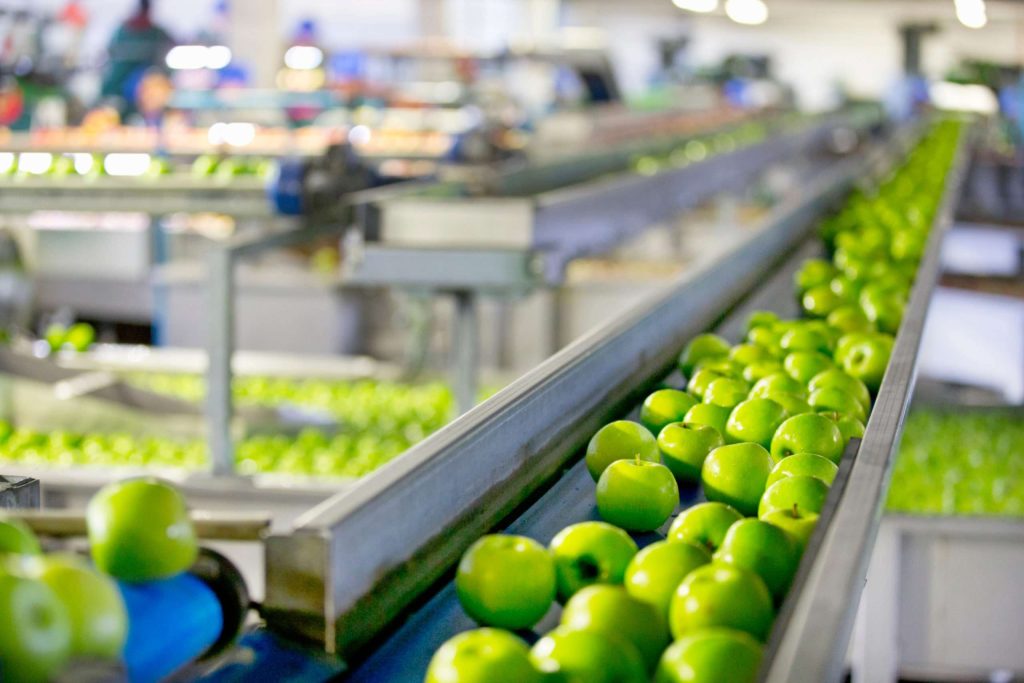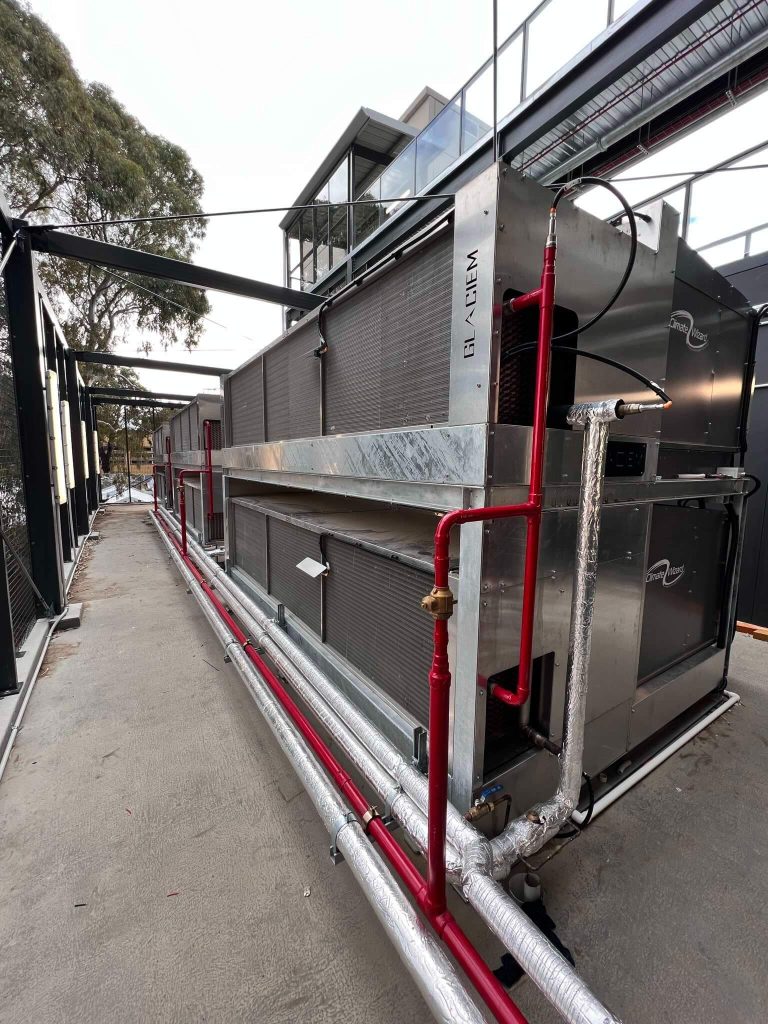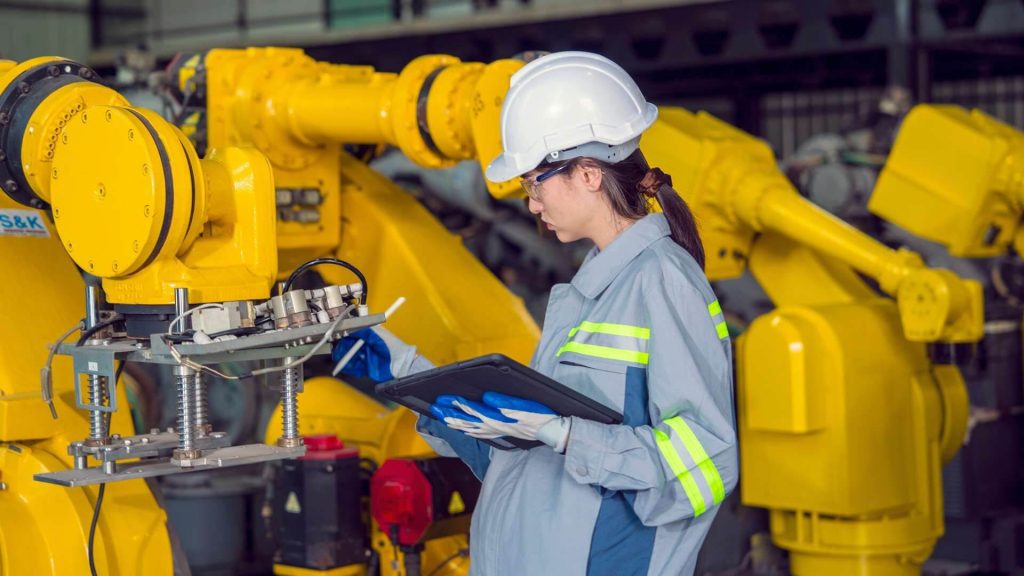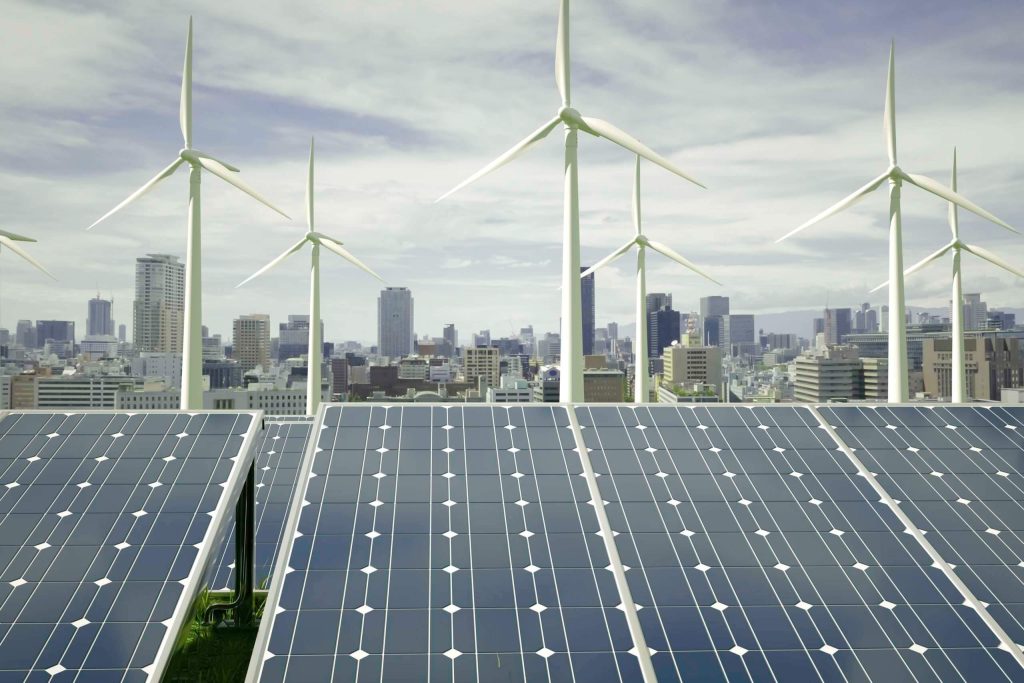Chief Investigators
Jarrod Leak (A2EP)
Purpose of project
Currently, there is a gap in the food value chain (VC) industry which assesses energy productivity. This study was specifically focused on engaging with the industry to assess energy productivity within the food value chain and establish an alliance of stakeholders from the industry, whose focus will be on transforming energy productivity and accelerating decarbonisation. The project applied three core elements – a focus on energy productivity, value chains and the application of a systems innovation research model.
Findings
- Priorities varied across the food value chain stakeholders but included reducing food waste, packaging, increasing the use of renewable energy, the climate impacts of refrigerants and cost/profit issues
- Substantial research, development and innovation is occurring, but mostly at the individual business or industry level. Some groups, such as Food Innovation Australia Limited and Fight Food Waste Cooperative Research Centre (CRC), are working more broadly with life cycle assessment, supply chain projects etc. Most of the focus is on food waste or process-specific areas in an individual business
- Emerging issues with potential to justify more attention on energy productivity and collaboration included increasingly ambitious decarbonisation commitments and obligations (particularly Scope 3 greenhouse gas emissions), circular economy industrial models, digitalisation and connection and an increasing focus on environmental performance
- Energy efficiency and productivity were seen as important, but not important enough to be a high priority. There was limited understanding of the potential benefits of energy-related action beyond reducing energy costs. Factors that undermined prioritisation of energy productivity included:
- Farming that focused just on reducing energy costs
- The energy dimensions of many decisions often not being recognised during key decision-making processes
- The cost and climate impact of energy use being hidden in the overall price paid at each interface
- Direct energy costs being a small proportion of total costs
- Underutilised potential to create energy-related carbon offsets in the food value chain
Most businesses focused on immediate suppliers, the business itself and immediate customers, which allows many inefficiencies to occur, as shown in Figure 1
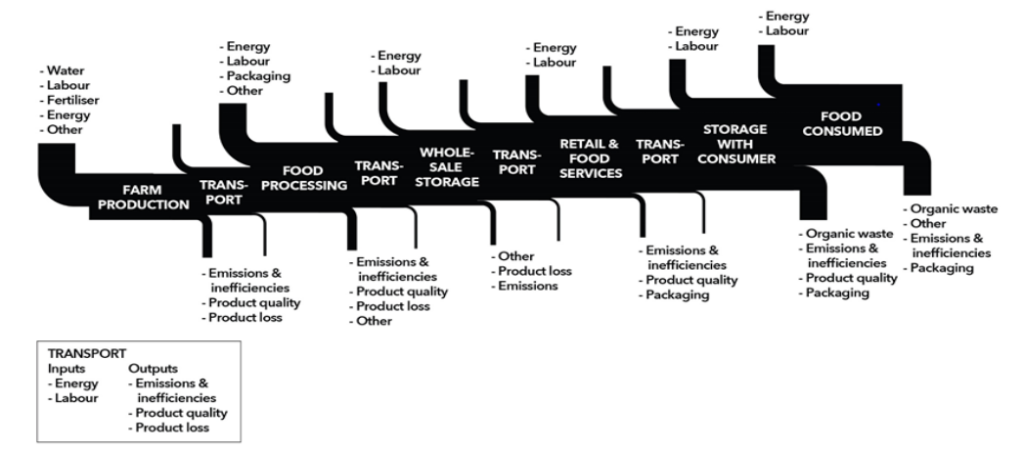
Figure 1: Flow diagram that highlights the potential for value add or loss at each stage of the value chain, and the progressive increase in value of product
- Participants flagged a number of potential significant areas where collaboration across the value chain is potentially important, such as standardisation and security of data and data systems, streamlining and updating of regulatory frameworks, identification and implementation of training
Research roadmap – the path towards decarbonisation
During the project it became clear that a lot of valuable research, innovation and delivery regarding energy related issues was occurring – but it was not perceived to be related to energy productivity improvement. This means there is substantial potential to drive energy productivity improvement by working with and building on existing organisations and activities. The challenge is to integrate energy productivity into existing activity and expand its scope. The project team recommended the creation of a Consortium to lead the transformation with an aim to lead/ consolidate/ evolve the areas of focus in a cascade strategy and set a roadmap to enable continuous systems innovations required for enabling energy productivity gains. The framework for the consortium is shown in Figure 2.
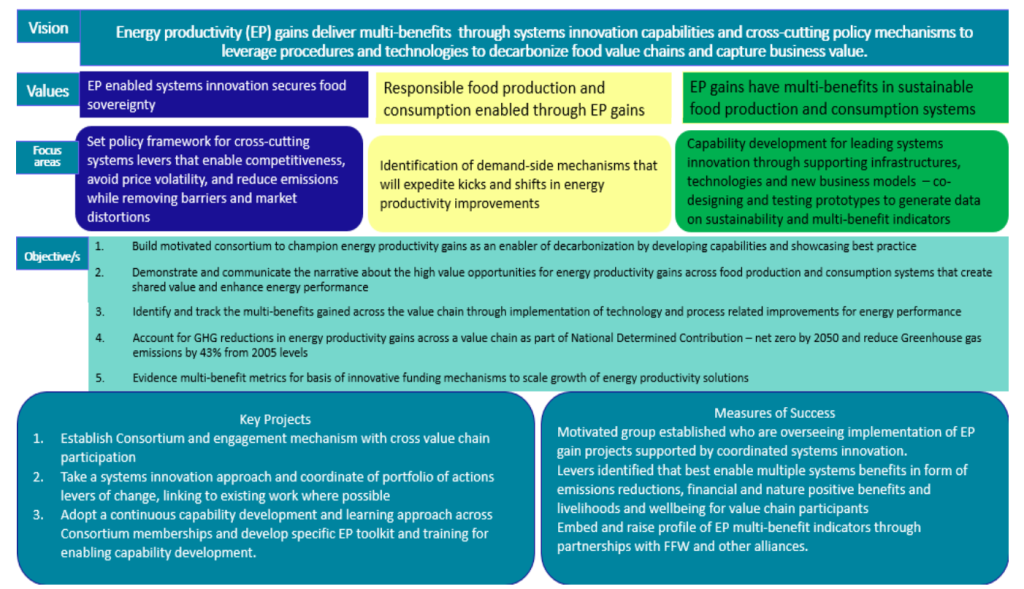
Figure 2: Energy Productivity Cascade strategy
Project partners – industry and research
Australian Alliance for Energy Productivity (A2EP) (Lead), Agrifutures, Climate-KIC, University of Technology Sydney (UTS)
Webinar recording
Published Report
Status
- Completed
Project Leaders
- Jarrod Leak, A2EP
Completion Date
June 2023
Project Code
0449





